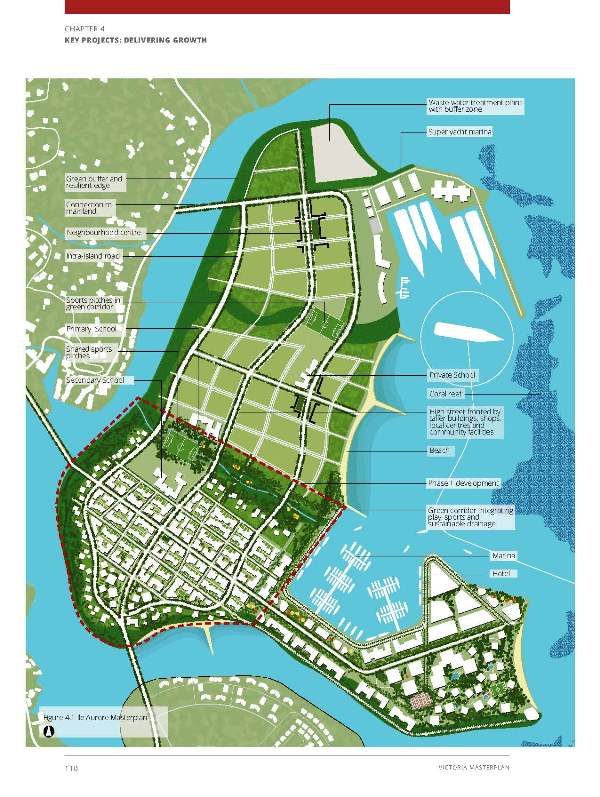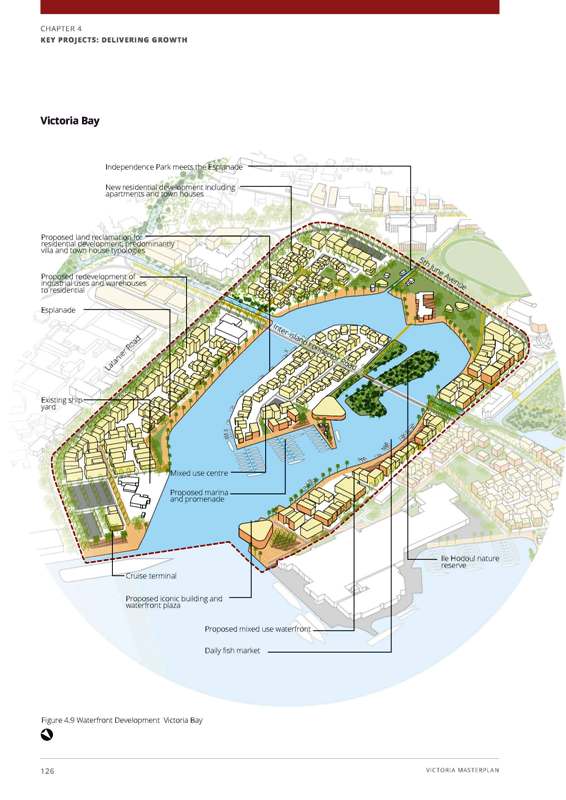Seychelles takes stock of its successes and challenges in the housing sector |07 October 2016
Seychelles takes stock of its successes and challenges in the housing sector
On Monday October 3, 2016 Seychelles joined the rest of the world in celebrating World Habitat Day. The United Nations has designated the first Monday of October every year for the leaders of the world, government, civil society, NGOs as well as all citizens to reflect on one of the most basic needs of life, a habitat.
The international theme chosen for this year is ‘Housing at the Centre’ (translated into Creole as ‘Lozman o sant devlopman’. By choosing this theme UN Habitat wishes to lay emphasis on the focus of National Governance in providing houses from simply building houses to a more holistic framework for housing development, orchestrated with good planning practices and placing people at the forefront of sustainable development.
‘The housing sector has made great strides towards building a stronger and more prosperous Seychelles’
In his World Habitat Day message to the nation Christian Lionnet, the Minister for Land use and Housing, has placed a lot of emphasis on the achievements of the government over the past 39 years in power and has also stressed on the various challenges that the housing sector in Seychelles is facing.
“As we reflect on the theme today, I urge every Seychellois without exception, whether you own a property or not, to become more conscious of your living conditions, your immediate environment or habitat, as well as to focus on potential solutions to your housing problems and challenges. I want you all to take time to reflect on the progress our country has made to improve the housing conditions of our people. The reality of our achievements is here for us to see. Let us also be equally conscious of the new challenges we face, challenges not only meeting the national housing demand, but also challenges to sustain our successes, challenges to contain our evolving lifestyles, challenges that threaten our successes. Seychelles has reached a long way on the learning curve where housing development is concerned. The housing sector has made great strides towards building a stronger and more prosperous Seychelles – a country where we can have a great lifestyle comparable with bigger and prosperous nations of the world. Achieving more that 75% home ownership has not been a simple task and has not happened haphazardly. The progress is due to the hard work and positive attitude of many men and women living and working in Seychelles. It is also because of the stability, cohesion and confidence that have come from the decades of strong and stable government.
“Despite, our impressive accomplishments, we constantly need to be reminded of our collective responsibility of providing and maintaining our houses. I agree that the government needs to continuously be setting stimulating targets, revising our policies and strategies so that we can achieve more and become more efficient at what we do, but the development and improvement of the housing sector in Seychelles is everybody’s business. Let today be the day that all of us take the issue of housing as a serious part of our future investment. Let us concentrate on development that will bring us closer together, allowing for greater connectivity and interaction. Let us create loving homes, stable families and stronger communities. The government will continue to facilitate the process and provide the right conditions for housing development, and I urge the private sector to also become more proactive and innovative in partnering the government to come up with housing solutions, especially to the low and middle income earners.”
‘Every Seychellois should be owner of his or her house’
Joseph Francois, the principal secretary (PS) for Land Use and Housing, echoed what Minister Lionnet said in his World Habitat Day message – that the approach of putting housing at the centre of development has long been recognised by the Seychelles government though its socialist principle. Despite the various constraints and limitations of the country in terms of financial, human and land resources, the government in power has been consistent is adopting a pragmatic and steadfast approach to housing development in the country and always keeping housing development at the forefront in its national programme.
“Special vigour has been placed on long-term programmes for appropriate solution in tackling our housing shortages and the standard and quality of houses for our people, especially the low to middle income earners. Today, about forty years down the line, Seychelles’ ultimate aim for housing is not only to facilitate access to housing, but for every Seychellois to own his or her house. Figures from the Seychelles Bureau of Statistics confirms the effort of the government by stating that over 75%of Seychellois families in Seychelles own the houses they are currently living in”.
“Thus, today Seychelles is ranked among the top countries in the world in that respect, well on par with the most advanced developed nations. Undoubtedly, this is an extraordinary achievement in our small country’s socio-economic development which has trickled down on all other sectors, be it economic, social or environmental. This remarkable accomplishment has been strongly catalysed by the government’s strong principles and objectives to provide housing to our population for the past 39 years”.
‘Towards an integrated approach to development’
Gerard Hoareau, chief executive of the Seychelles Planning Authority, said that “housing continues to remain the predominant demand sector of physical development in Seychelles; this is reflected by an increase in planning applications for dwelling houses every year. The authority foresees it to remain so for the coming decade”.
“Our planning and development programmes thus continue to recognise the need for housing as priority, and whatever we do, we need to ensure every Seychellois see how their housing needs are realised, while other important infrastructure and economic activities to support sustainable development may also occur harmoniously.”
“Sponsored by the Abu Dhabi Urban Planning Council, ARUP, an international based company, together with the ministry, formulated the first ever Seychelles Strategic Land Use and Development Plan as well as the Victoria Master Plan and Mahé Framework. One of the main outcomes of these plans is to create sustainable and liveable communities which integrate compatible uses such as commercial, tourism and recreational activities into existing and new residential spaces. Typical examples are the latest Land Use Plan for Ile Aurore and the Victoria Waterfront.
“We are already implementing this integrated approach in major development zones, but will also increase focus of this principle in regional or district projects”.
‘Our housing estates need care and upkeep so that our living environment remains conducive and healthy’
Yves Choppy, principal secretary for Project Planning & Implementation in the Ministry of Land Use and Housing, said: “We have in the past focused on the physical planning and capital investment for the housing sector, but as time passes we are realising that the estates we built over the past years need care and upkeep so that the environment that our population live in remains conducive and healthy. We also have to ensure that these estates continue to serve their beneficiaries within the parameters that they were conceived with, while adapting to the changes our society faces. This takes discipline on the part of the beneficiaries, investment in their upkeep and solutions to cases where the current facilities no longer meet the needs. We face challenges in continuing to assist members of our population not yet assisted, but we also face challenges sustaining the environments we have built, in good and healthy condition.”
‘PMC needs R42m in 2017 and 2018 to maintain existing housing estates’
On the part of the Property Management Corporation (PMC), chief executive Jules Baker said: “After assessment of conditions in existing housing estates managed by PMC, we estimate that PMC would need to invest in the region of R42 million in 2017 and in 2018 (on top of their routine functions) to maintain the existing housing estates”.
“There is increasing demand for construction of extensions in already dense estates for lack of alternative opportunities as families expand. We face social ills which undermine the living conditions and ability of homeowners to upkeep their houses. We find across the country several instances where lower income families have difficulties in keeping in good state the houses they have benefited from. All of these challenges call for us to have more sustainable mechanisms, and this needs to be with the participation of the beneficiaries, the private financing institutions and government as a facilitator.”
‘Private financial institutions need to be more responsive to housing needs of their clients’
Ronny Palmyre, chief executive of the Housing Finance Company (HFC), said: “The government, at the start of this year, introduced measures to help address some of the emerging challenges in the housing loan sector especially for vulnerable citizens such as pensioners. This includes pensioner’s housing improvement loans, subsidy of 25% on all loans taken by pensioners. The government continues to sustain its subsidy scheme on housing loans for all low and middle income earners. I feel that we now need to focus and give more attention to improving our services and products at HFC to respond better to the needs of fast evolving population. The private financial institutions also need to be more responsive to the housing needs of their clients and put in place appropriate housing schemes which match the budget of their clients.”

Land use plans for Ile Aurore and Victoria Waterfront: Striving to create sustainable and liveable communities which integrate compatible uses such as commercial, tourism and recreational activities into existing and new residential spaces

The housing estates that the government has built over the years need care and upkeep so that the environment that our population live in remains conducive and healthy




